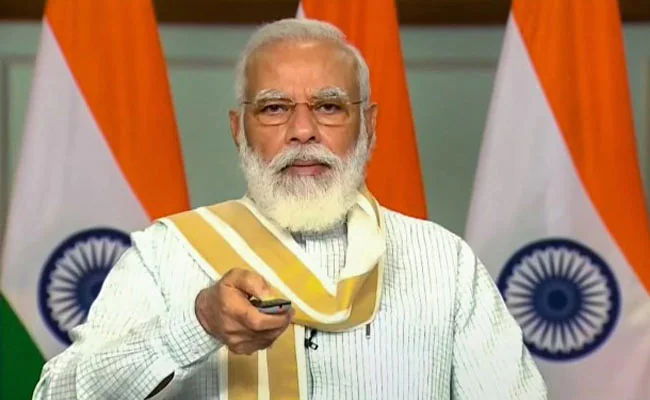Prime Minister of India is a Constitutional post under Article 74 of our constitution. Article 74 states, India shall have a Prime Minister. Prime Minister is the real head of the Government, whereas President is nominal/symbolic head.
Prime Minister is appointed by the President. He is affirmed oath of office by President. If Prime Minister want to resign, he submits his resignation to the President. The resignation of prime minister means resignation of the whole Union Council of Ministers.
Tenure
Tenure of Prime Minister is 5 years but not fixed. He holds office till he has the majority support of Lok Sabha. The moment he loses the majority support of Lok Sabha, he has to resign.
Eligibility
Any India citizen above the age of 25 years and a member of either house of Parliament can be appointed as Prime Minister by the President. Our President can also appoint a person as Prime Minister who is not a member of either house of Parliament but in such case Prime Minister must secure membership of either house of Parliament within 6 months after his appointment to continue on the post.
In 1996, Sh. H. D. Devgowra was appointed Prime Minister by President Shankar Dayal Sharma. Mr. H. D. Devgowra was not a member of Parliament rather he was Chief Minister of Karnataka. He resigned from the post of Chief Minister and after becoming Prime Minister acquired the membership of Rajya Sabha within 6 months to continue as Prime Minister.
Election of Prime Minister
Prime Minister is elected by members of Lok Sabha having majority in Lok Sabha. In 2014 and again in 2019 Lok Sabha elections NDA got the absolute majority and its Lok Sabha members elected Narendra Modi as their leader and President appointed him Prime Minister. He will continue till he will be having majority support in Lok Sabha.
Sh. Jawahar Lal Nehru, was our 1st Prime Minister. Sh. Man Mohan Singh was 14th Prime Minister and Narendra Modi is our 15th Prime Minister.
(Manmohan Singh was De-jure Prime Minister and Sonia Gandhi was De-facto Prime Minister. De-jure means the person legally/Constitutionally holding the position whereas De-facto means the person actually controlling the position)
Our many Prime Minister could not complete their tenure of 5 years. Morarji Desai became Prime Minister in 1977 but resigned in 1979, Charan Singh resigned after 21 days. V.P. Singh just for 1 year. Chandra Shekhar resigned after 4 months. Atal Bihari Bajpai for 13 days, 13 months and later on for 5 years from 2009 to 2014. H. D. Devegowda & Indra Kumar Gujral also could not complete their tenure while Lal Bahadur Shashtri died as Prime Minister in 1967. J.L. Nehru too died in 1964 when he was PM and Indira Gandhi was murdered on 31st October 1984 while she was PM.
President is bound by the Constitution to act on the advice of Prime Minister. Prime Minister can object to any decision taken alone by President.
Union Council of Ministers
First of all, President administers oath of office to the Prime Minister. Prime Minister do form his Council of Ministers. All ministers are selected by prime minister.
- Ministers are appointed by the President on the advice of Prime
- Portfolios i,e, ministries to ministers are allotted by President on the advice of Prime
- Portfolio of a minister can be changed by President on the advice of Prime
- A ministers can be dismissed from Union Council of Ministers by the President on the advice of Prime
Qualification to be a Minister
Our President appoints a person who is also a member of Parliament- a Ministers in Union Council of Ministers on the advice of Prime Minister. President can also appoint a person as minister who is not a member of either house of Parliament but in that case, he has to attain membership of either house of parliament within 6 months to his appointment to continue as minister otherwise he will have to resign.
Structure of Union Council of Ministers
It is the right of the Prime Minister to decide how many tiers of Union Council of Ministers he want to make. He can make one tier, 2 tier or 3 tier Union Council of Ministers.
Generally Union Council of Ministers is of three tiers as:
- Cabinet Ministers – They are incharge of their particular ministry
- Ministers of State – They assist cabinet minister of their particular ministry
- Deputy Ministers – They assist minister of state of their particular
Prime Minister Narendra Modi has made his Union Council of Ministers as of two tiers having Cabinet Ministers & Ministers of State. No one has been inducted as Deputy Minister.
By 91st Constitution Amendment Act 2003 the maximum size of Union Council of Ministers cannot be more than 15% of the total strength of Lok Sabha (i.e. not more than 15% of 543 = 81) so maximum size of Union Council of Ministers including Prime Minister cannot be more than 81.
Deference between Union Cabinet and Union Council of Ministers
Union Cabinet = P.M. + Union Cabinet Ministers only Union Council of Ministers = P.M. + All Ministers
Union Cabinet is a smaller body consisting of Prime Minister + Cabinet Ministers only, whereas Union Council of Ministers is bigger body consisting of Prime Minister + all ministers. All important decisions are taken by Union Cabinet and not by Union Council of Ministers e,g. Union Law Minister is Kiren Rijiju and
S.P. Singh Baghel is Minister of State Law. Whenever there will be a Cabinet meeting Kiren Rijiju will take part and S.P. Singh Baghel will not. Kiren Rijiju is a member of Union Cabinet as well as Union Council of Ministers but S.P. Singh Baghel is a member of Union Council of Minister but not Union Cabinet.

